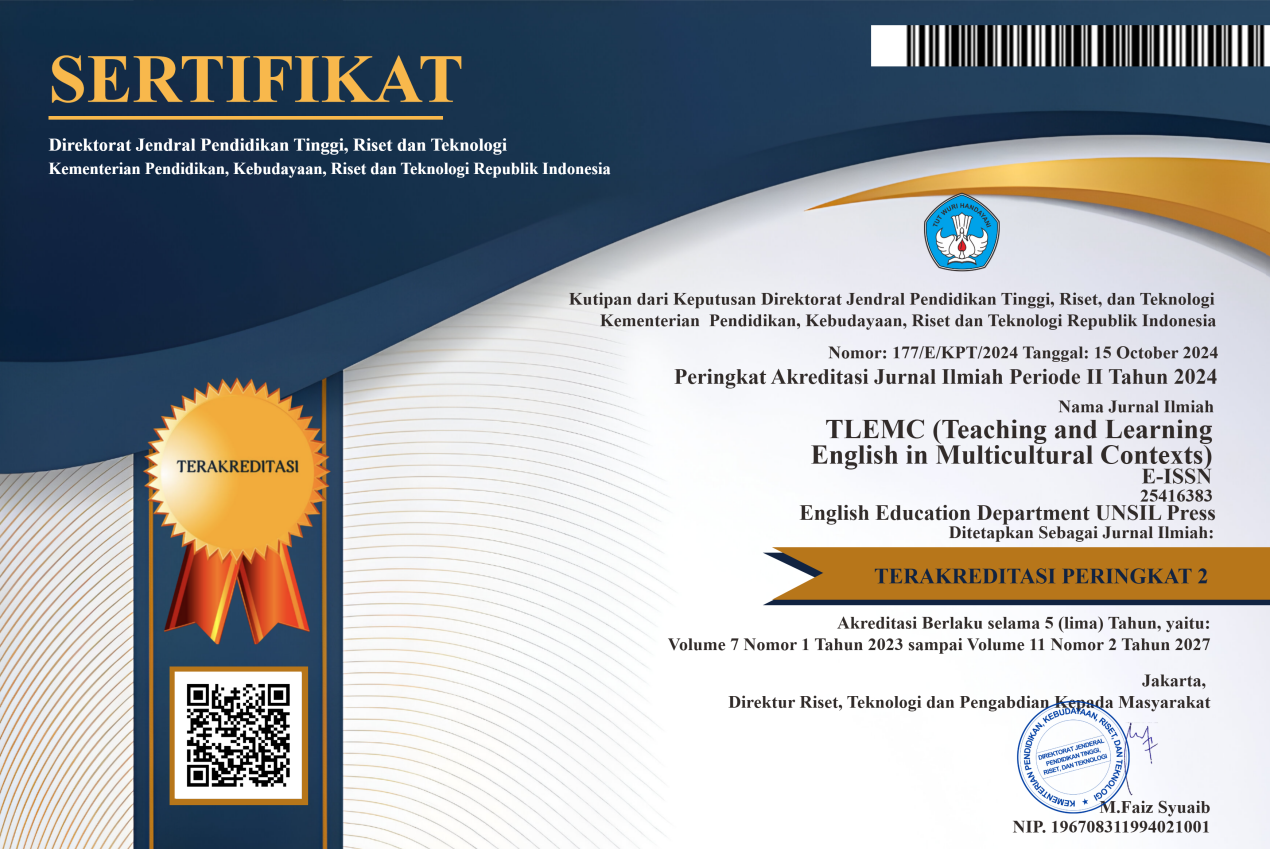RECALLING STUDENT TEACHER’S BELIEFS ON ENGLISH LANGUAGE TEACHING: EVIDENCE FROM A PRE-SERVICE TEACHING PROGRAM IN INDONESIA
Abstract
Pedagogical decisions and teaching practice are influenced by student teachers’ belief. Personal predispositions of student teachers’ beliefs on teaching practice are strongly affected by their experiences, or course content they have been taken. In developing their beliefs, values, and practice of teaching, student teachers adopt theories about good teaching practice by interpreting these experiences in teaching or taking courses. The numbers of studies have been conducted about student teachers’ belief on teaching practice from their experiences in teaching-learning, but less attention put on student teachers’ belief in interpreting their pedagogical knowledge from theories to practices. Thus, to fill the gap, the writers conduct a case study regarding to a student teacher’s belief after she had received pedagogical courses and finished preservice teaching program. Using a thematic analysis from a semi structured interview and reflective journal from a student teacher in English Education Department in Tasikmalaya, the researchers examined the student teacher’s belief based on her experiences in pre-service teaching program. The overall contribution of this study is to evaluate student teachers’ teaching belief with the principle of teaching given in the class, since teaching belief is significant to personal development of pre-service teachers.
Full Text:
PDFReferences
Cheng, L., Fox, J., (2017). Assessment in the Language Classroom. London: Applied Linguistics for the Language Classroom
De Vries, S., Jansen, E. P. W. A., Helms-Lorenz, M., & van de Grift, W. J. C. M. (2015). Student teachers’ participation in learning activities and effective teaching behaviours. European Journal of Teacher Education, 38(4), 460–483.
Gruson, B., & Marlot, C. (2015). Do teachers make all their students play the same learning games? A comparative study of learning games in biology and English as a second language. Teaching Education, 27(1), 1–20.
Jenkins, C. (2011). Authenticity through reflexivity: connecting teaching philosophy and practice. Australian Journal of Adult Learning, 51, 72-89.
Kim, J., & Tatar, B. (2017). Nonnative English-Speaking Professors’ Experiences of English-Medium Instruction and Their Perceived Roles of the Local Language. Journal of Language, Identity & Education, 16(3), 157–171.
Kömür, Ş. (2010). Teaching knowledge and teacher competencies: a case study of Turkish preservice English teachers. Teaching Education, 21(3), 279–296.
Kumagai, K., & Black, L.J. (2018). Teaching philosophy in practice: Developing compatibility through personal practical knowledge. Indonesian Journal of Applied Linguistics, 8, 464-472.
Payant, C. (2016). Teaching philosophy statements: In-Service ESL teachers‘ practices and beliefs. TESOL Journal, 8, 636-656.
Teng, L. S. (2016). Changes in teachers’ beliefs after a professional development project for teaching writing: two Chinese cases. Journal of Education for Teaching, 42(1), 106-109.
Wall, C.R.G. (2016). From student to teacher: changes in pre-service teacher educational beliefs throughout the learning-to-teach journey. Teacher Development, 20, 364-379.
DOI: https://doi.org/10.37058/tlemc.v2i2.896
Refbacks
- There are currently no refbacks.
INDEXED BY:
This work is licensed under a Creative Commons Attribution-NonCommercial-ShareAlike 4.0 International License.
![]()
TLEMC (Teaching and Learning English in Multicultural Contexts)
Program Studi Pendidikan Bahasa Inggris
Fakultas Keguruan dan Ilmu Pendidikan
Universitas Siliwangi
Jl. Siliwangi No. 24 Kota Tasikmalaya - 46115
email: tlemc@unsil.ac.id





